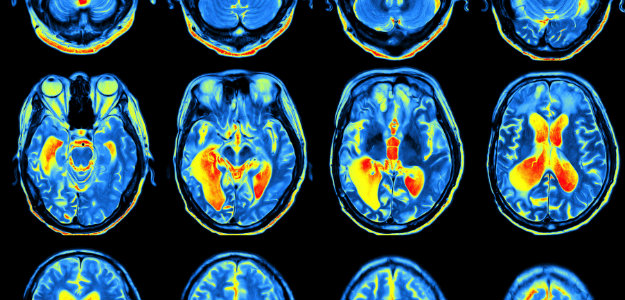Diagnosing ADHD with a Brain Scan
Attention-deficit/hyperactivity disorder (ADHD) can be difficult to diagnose. Not only can it be hard to tell what a normal level of inattention or impulsivity is, ADHD can also present itself differently in girls and in boys. ADHD often goes undiagnosed in childhood, leaving some adults wondering why they can never get their lives organized the way all their friends seem to be.
If psychiatric testing has been inconclusive, a brain scan—specifically, an MRI of your brain—might be able to determine if ADHD is an underlying issue.
What Is ADHD?
ADHD is a neurodevelopmental disorder that forms in childhood and causes a persistent pattern of inattention or impulsivity that interferes with your life. Although it can be worse in kids than in adults, it does not go away over time. Common symptoms of ADHD include:
- Constant fidgeting
- Daydreaming
- Disorganization
- Finding it hard to sit still
- Hyperactivity
- Impulsive actions
- Inability to delay gratification
- Lack of focus
- Procrastination
- Risk taking
It’s important to realize that ADHD looks very different from person to person. Some symptoms are similar to those of learning disorders; other symptoms overlap with psychological disorders. This is why ADHD can be so hard to diagnose, and why ADHD brain imaging can help.
How Brain Scans Work to Diagnosis ADHD
Traditionally, ADHD is diagnosed by a combination of psychological and physical evaluations, sometimes including lengthy questionnaires or tests. But over the past two decades, research has shown that the brains of patients with ADHD look different than the brains of people who don’t have ADHD. These differences show up on various brain scans in multiple types of imaging, including a functional MRI, called an fMRI.
In a recent study, brains of children with ADHD showed alterations in three regions (the left temporal lobe, the bilateral cuneus and the area around the left central sulcus). Within those patients, brain scans also showed differences in patients with different subtypes of ADHD: inattentive and a combination of inattentive and hyperactive. The distinctions had 80% accuracy.
When an fMRI is used in conjunction with other diagnostic tools and evaluations (which is required by the FDA), it can ensure a correct diagnosis of ADHD. Additionally, brain scans offer a non-invasive method of identifying young children who may be at risk. As a result, parents can start treatment earlier and potentially avoid some of the condition’s most severe symptoms and difficulties.
AHI Makes It Easy to Get a Brain Scan
American Health Imaging has dozens of convenient locations across the southeast. We provide services at times that work for you, staying open late and on weekends. We also offer affordable rates and work with many insurance providers. We also coordinate with your doctors, wherever they are located, sharing imaging immediately so you won’t be stuck waiting on a diagnosis.
If you think you or a loved one could be struggling with ADHD, contact us for more information about whether a brain MRI could be right for you.
